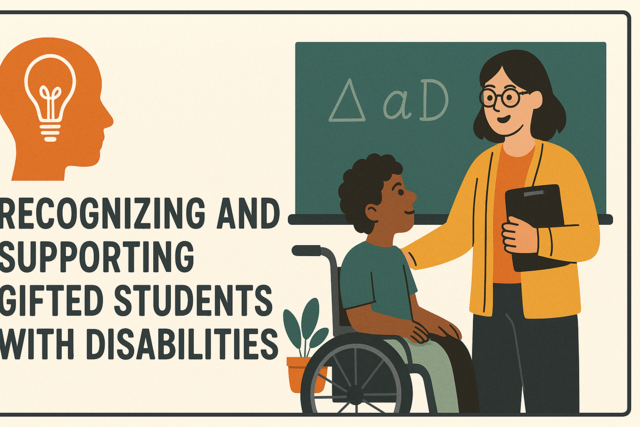Online Class: Addressing Trauma in Students with Disabilities

no certificate
with CEU Certificate*
-
15Lessons
-
22Exams &
Assignments -
3Hours
average time -
0.3CEUs
Course Description
Imagine stepping into a classroom where every student, despite their challenges, shines with potential. A space where educators have the power to mend invisible wounds and ignite hope in the eyes of learners often overlooked by traditional systems. Welcome to "Addressing Trauma in Students with Disabilities," a transformative journey that redefines educational impact. This is not merely a course; it's a calling that resonates deeply within the heart of compassionate educators longing to make a palpable difference.
This course seamlessly weaves together the intricate narratives of trauma and disability, providing you with an empathetic understanding that transcends standard educational approaches. It prepares you to be the advocate these students desperately need, guiding them toward resilience and triumph. Imagine the profound change you can foster when you understand the undercurrents of trauma influencing a student's world and can navigate through them with informed precision and warmth.
As you embark on this journey, the first step is to shift your perspective, seeing beyond behavior and recognizing issues as unmet needs seeking expression. You will delve into the nuanced intersection of trauma and disability, gaining insight into how trauma reshapes the experiences and potential of students. This knowledge empowers you to cultivate an environment where healing is not just an option but an integral part of the learning process. You will learn to decode the stories behind behaviors, turning obstacles into opportunities for support and growth.
The course doesn't just end at understanding; it equips you with practical tools rooted in brain science, like neuroplasticity. You'll learn to harness the brain's incredible capacity for change, employing strategies that promote healing and strength. These transformative practices will enable you to restore hope and capabilities in students who are often left in the shadows, giving them a voice and a platform to excel.
One of the course's most invaluable gifts is its deep dive into cultural contexts with respect to trauma and disability. You will emerge with a robust cultural competence, able to provide tailored interventions that honor each student's unique cultural identity. This is not just about creating support systems; it's about crafting an inclusive narrative where every student feels understood, valued, and empowered to succeed.
Imagine the impact of fostering resilience among diverse learners, channeling their challenges into pathways of personal and academic triumph. You will be equipped to not just teach, but to transform; to turn classrooms into sanctuaries of empowerment and mutual respect. The knowledge and strategies you gain here will not only change the trajectory for your students but enrich your own journey as an educator, reaffirming your purpose and unleashing your potential to shape a better world.
Moreover, this course acknowledges that educators are human too, vulnerable to the pressures and emotional tolls of their vital roles. It offers guidance on maintaining your own well-being through professional boundaries and support systems, ensuring that your capacity to heal and inspire doesn't dim under the weight of secondary trauma.
Ultimately, "Addressing Trauma in Students with Disabilities" is the definitive course for educators seeking to elevate their practice to unprecedented heights. It challenges you to redefine what's possible in education, to cultivate futures where every student, regardless of their hurdles, walks a path paved with opportunity and dignity. This course invites you to be a beacon of transformation, to invest in a future where trauma-informed, disability-aware education is the norm, not the exception.
Join this groundbreaking movement. Become the educator who doesn't just stand in a classroom but stands for something greater—compassion, equity, and unyielding belief in the potential of every student. Your journey to making an indelible impact starts here. Are you ready to change lives, including your own? Enroll today and be part of this essential crusade towards an inclusive, understanding, and transformative educational future.
- Completely Online
- Self-Paced
- 6 Months to Complete
- 24/7 Availability
- Start Anytime
- PC & Mac Compatible
- Android & iOS Friendly
- Accredited CEUs

Course Lessons
Lesson 1. Between Burden and Growth: Navigating Trauma in Students with Disabilities
Educators play crucial roles in recognizing trauma's effects on students with disabilities, driving efforts to create environments grounded in safety, trust, and collaboration. Empowering these students involves understanding their unique challenges and providing resources that facilitate healing and learning.Lesson 2. Trauma and Disabilities
This lesson emphasizes the importance of understanding trauma's impact on students with disabilities and how such experiences can complicate their academic and social lives, highlighting the need for trauma-informed care in educational settings. By recognizing and addressing various trauma-inducing scenarios—such as medical procedures, bullying, and neglect—the educational system can provide better support, fostering resilience and recovery.Lesson 3. Rewiring the Brain for Healing
Understanding neuroplasticity is crucial for harnessing the brain's adaptability in trauma recovery, offering a path to healing for students with disabilities. With strategies like mindfulness, arts, and supportive relationships, the brain can reconfigure itself for resilience and growth.Lesson 4. Cultural Contexts and Trauma: A Comprehensive Approach to Supporting Students with Disabilities
Recognizing the interplay of culture, trauma, and disability is crucial to understanding each student’s unique experience and fostering inclusive educational support. Educators should be equipped with cultural competence to tailor interventions, ensuring that students feel valued and understood in their multicultural identities.Lesson 5. Harnessing Resilience: Empowering Diverse Learners
Personalized, trauma-informed education for students with disabilities focuses on understanding their unique stories and leveraging strengths to build resilience.Lesson 6. The Profound Impact of Trauma on Children with Disabilities: A Comprehensive Educational Guide
A trauma-informed educational approach underscores the importance of understanding and addressing diverse manifestations of trauma in students, particularly those with disabilities. Educators, by embracing empathy, tailored teaching methods, and collaboration with families and professionals, can transform classroom experiences into healing opportunities.Lesson 7. Integrated Support Systems: A Holistic Approach to Trauma in Education
A trauma-sensitive learning environment built on clear routines and understanding can significantly boost students' emotional regulations and learning abilities. Teachers, families, and mental health professionals collaborating on individualized interventions create a robust support network essential for student success.Lesson 8. Supporting Students with Disabilities Through a Trauma-Informed Lens
The complex relationship between trauma and disabilities reveals how adverse experiences can exacerbate existing challenges in cognition, emotional regulation, and social interactions for affected students. Integrating trauma-informed practices into educational settings not only supports these students but enriches the overall learning environment, fostering resilience and empowerment.Lesson 9. Creating Inclusive Learning: Trauma-Informed Practices in Education
Trauma-informed practices in education focus on creating environments characterized by safety, predictability, and empowerment, particularly for students with trauma histories. By acknowledging trauma's diverse impacts and fostering strong educator-student relationships, schools ensure a nurturing space that supports academic and personal growth.Lesson 10. A Legal Tapestry: Supporting Students Overcoming Trauma and Disabilities
Section 504 of the Rehabilitation Act ensures equal access to education for students with disabilities who may not qualify for IDEA, offering accommodations through 504 Plans to prevent retraumatization. Michael's difficulty concentrating due to trauma is addressed by adjusting his learning environment, making educational content approachable and less stressful.Lesson 11. Transforming Schools: Empowering Students with Disabilities
Peer support systems are invaluable for students with disabilities, offering emotional support and fostering resilience. These networks empower students to overcome trauma by engaging in shared experiences and meaningful interactions with their peers.Lesson 12. Trauma's Hidden Influence on Education
Recognizing the unique impact of trauma on students with disabilities is essential for effective educational strategies that foster inclusivity and empowerment. Trauma-informed educational environments prioritize safety, trust, and collaborative support to help students overcome cognitive, emotional, and social challenges.Lesson 13. The Intricate Impact of Trauma on Students with Disabilities: A Comprehensive Guide
The lesson emphasizes the importance of recognizing trauma's behavioral manifestations, particularly among students whose disabilities complicate expressive behaviors. By understanding responses like hyper-vigilance, withdrawal, and regression, educators can better discern their origins and offer tailored interventions.Lesson 14. The Ripple Effects of Secondary Trauma in Education
Establishing and maintaining professional boundaries is crucial for educators to prevent secondary trauma and avoid burnout, ensuring their capacity for impactful teaching. Schools can support this by offering counseling services, managing workloads, and facilitating open communication with students and families to set realistic expectations.Lesson 15. Creating Nurturing Educational Landscapes: Trauma-Informed Practices for Students with Disabilities
Trauma-informed education integrates safety, trustworthiness, and empowerment to support students with disabilities, addressing their heightened vulnerability to trauma. These practices not only improve emotional and academic outcomes but also foster inclusive school climates that celebrate diversity and minimize discrimination.
Learning Outcomes
- Demonstrate understanding of trauma-informed approaches by identifying strategies to implement within an educational environment to support students with disabilities.
- Recognize and describe the three main types of trauma (acute, chronic, and complex) and how they uniquely affect students with disabilities.
- Identify behavioral and emotional signs of trauma in students with disabilities, and apply trauma-informed strategies to support their academic and personal growth.
- Recognize the different types of trauma that affect students with disabilities and analyze their impact on students' academic performance and social interactions.
- Demonstrate understanding of neuroplasticity by describing how specific educational interventions can support healing and cognitive development for students with disabilities after trauma.
- Identify and analyze the impact of cultural and socioeconomic factors on the recovery process of students with disabilities, incorporating strategies that harness neuroplasticity.
- Define cultural contexts and their impact on trauma experiences in students with disabilities, emphasizing the role of educators in recognizing and addressing these influences.
- Identify strategies for implementing trauma-informed care that incorporates cultural awareness, enhancing support for students with disabilities and fostering inclusive educational environments.
- Demonstrate the implementation of personalized, trauma-informed strategies to support students by identifying and leveraging individual strengths.
- Recognize the impact of trauma on students with disabilities and describe how it affects their educational experiences.
- Demonstrate an understanding of effective trauma-informed strategies in educational settings by creating a plan that supports the emotional and cognitive needs of students with disabilities.
- Identify the various sources of trauma that can affect children with disabilities and explain their specific impacts on development.
- Identify the impact of trauma on students' learning processes by describing changes in their brain architecture, focusing on memory, attention, and emotional regulation.
- Demonstrate mastery of lesson content at levels of 70% or higher.
Additional Course Information

- Document Your Lifelong Learning Achievements
- Earn an Official Certificate Documenting Course Hours and CEUs
- Verify Your Certificate with a Unique Serial Number Online
- View and Share Your Certificate Online or Download/Print as PDF
- Display Your Certificate on Your Resume and Promote Your Achievements Using Social Media

Choose Your Subscription Plan
No Certificate / No CEUs
This course only
| Includes certificate | X |
| Includes CEUs | X |
| Self-paced |

|
| Instructor support |

|
| Time to complete | 6 months |
| No. of courses | 1 course |
Certificate & CEUs
This course only
| Includes certificate |

|
| Includes CEUs |

|
| Self-paced |

|
| Instructor support |

|
| Time to complete | 6 months |
| No. of courses | 1 course |
Certificates & CEUs
Includes all 600+ courses
| Includes certificate |

|
| Includes CEUs |

|
| Self-paced |

|
| Instructor support |

|
| Time to complete | 12 Months |
| No. of courses | 600+ |
Certificates & CEUs
Includes all 600+ courses
| Includes certificate |

|
| Includes CEUs |

|
| Self-paced |

|
| Instructor support |

|
| Time to complete | 24 Months |
| No. of courses | 600+ |
Related Courses
-
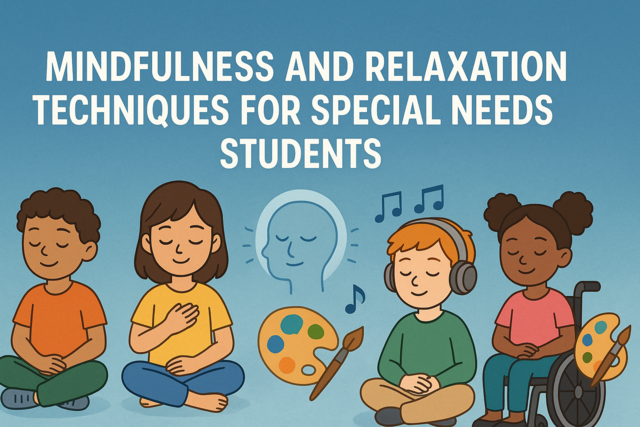 6 hours
0.6 CEUs
Mindfulness and Relaxation Techniques for Special Needs Students
+ More Info
6 hours
0.6 CEUs
Mindfulness and Relaxation Techniques for Special Needs Students
+ More Info
-
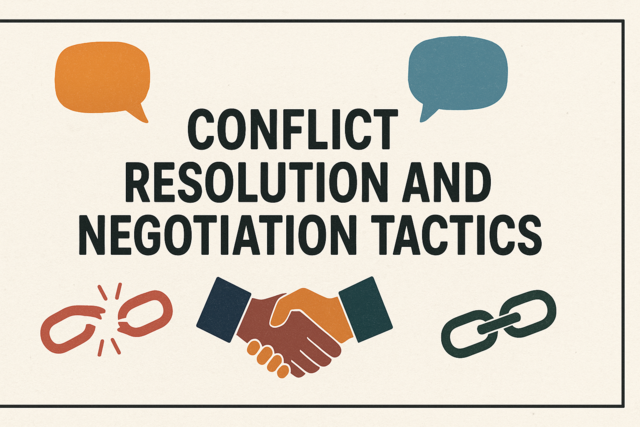 7 hours
0.7 CEUs
Conflict Resolution and Negotiation Tactics
+ More Info
7 hours
0.7 CEUs
Conflict Resolution and Negotiation Tactics
+ More Info
-
 3 hours
0.3 CEUs
Office Staff Productivity Boosters
+ More Info
3 hours
0.3 CEUs
Office Staff Productivity Boosters
+ More Info
-
 4 hours
0.4 CEUs
Enhancing Student Engagement and Motivation
+ More Info
4 hours
0.4 CEUs
Enhancing Student Engagement and Motivation
+ More Info
-
 5 hours
0.5 CEUs
Advanced Feng Shui Techniques
+ More Info
5 hours
0.5 CEUs
Advanced Feng Shui Techniques
+ More Info
-
 7 hours
0.7 CEUs
Digital Friendships: Navigating Virtual Connections
+ More Info
7 hours
0.7 CEUs
Digital Friendships: Navigating Virtual Connections
+ More Info
-
 6 hours
0.6 CEUs
Enhancing Customer Service Skills in the Office
+ More Info
6 hours
0.6 CEUs
Enhancing Customer Service Skills in the Office
+ More Info
-
 7 hours
0.7 CEUs
Travel Planning and Safety Skills
+ More Info
7 hours
0.7 CEUs
Travel Planning and Safety Skills
+ More Info
-
 3 hours
0.3 CEUs
Unpacking Attachment Styles: Keys to Healthier Relationships
+ More Info
3 hours
0.3 CEUs
Unpacking Attachment Styles: Keys to Healthier Relationships
+ More Info
-
 7 hours
0.7 CEUs
Self-Care and Wellness Practices
+ More Info
7 hours
0.7 CEUs
Self-Care and Wellness Practices
+ More Info
-
 6 hours
0.6 CEUs
Boundaries and Balance: Essential Insights for Healthy Relationships
+ More Info
6 hours
0.6 CEUs
Boundaries and Balance: Essential Insights for Healthy Relationships
+ More Info
-
 4 hours
0.4 CEUs
Paranormal Phenomena: Fact or Fiction
+ More Info
4 hours
0.4 CEUs
Paranormal Phenomena: Fact or Fiction
+ More Info
-
 6 hours
0.6 CEUs
Introduction to Minimalist Living
+ More Info
6 hours
0.6 CEUs
Introduction to Minimalist Living
+ More Info
-
 6 hours
0.6 CEUs
Basic Gardening and Plant Care
+ More Info
6 hours
0.6 CEUs
Basic Gardening and Plant Care
+ More Info
-
 4 hours
0.4 CEUs
Narratives of Love: Crafting Your Relationship Story
+ More Info
4 hours
0.4 CEUs
Narratives of Love: Crafting Your Relationship Story
+ More Info
-
 6 hours
0.6 CEUs
Sustainable Practices in Business
+ More Info
6 hours
0.6 CEUs
Sustainable Practices in Business
+ More Info
-
 5 hours
0.5 CEUs
Developing a Growth Mindset
+ More Info
5 hours
0.5 CEUs
Developing a Growth Mindset
+ More Info
-
 4 hours
0.4 CEUs
Understanding Auras and Energy Fields
+ More Info
4 hours
0.4 CEUs
Understanding Auras and Energy Fields
+ More Info
-
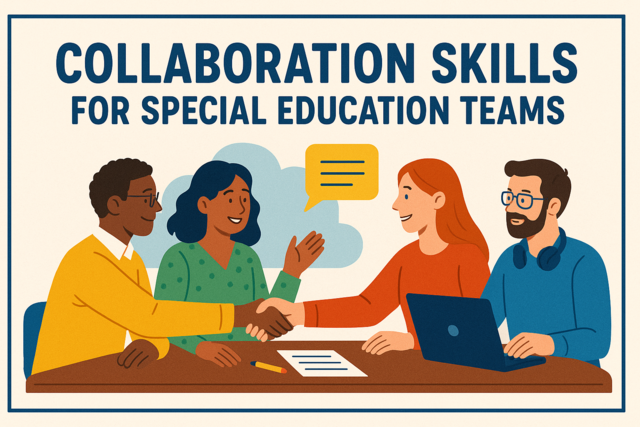 4 hours
0.4 CEUs
Collaboration Skills for Special Education Teams
+ More Info
4 hours
0.4 CEUs
Collaboration Skills for Special Education Teams
+ More Info
-
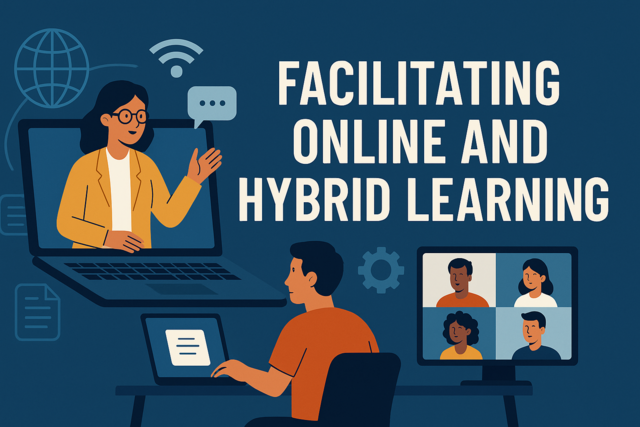 4 hours
0.4 CEUs
Facilitating Online and Hybrid Learning
+ More Info
4 hours
0.4 CEUs
Facilitating Online and Hybrid Learning
+ More Info
-
 3 hours
0.3 CEUs
Growing Up Narcissistic: Children in Self-Centered Families
+ More Info
3 hours
0.3 CEUs
Growing Up Narcissistic: Children in Self-Centered Families
+ More Info
-
 7 hours
0.7 CEUs
Healthy Sleep Habits and Their Importance
+ More Info
7 hours
0.7 CEUs
Healthy Sleep Habits and Their Importance
+ More Info
-
 6 hours
0.6 CEUs
Fashion Forward: Trendsetting in the Modern Era
+ More Info
6 hours
0.6 CEUs
Fashion Forward: Trendsetting in the Modern Era
+ More Info
-
 6 hours
0.6 CEUs
The Friendship Formula: Building Trust in Personal Networks
+ More Info
6 hours
0.6 CEUs
The Friendship Formula: Building Trust in Personal Networks
+ More Info
-
 4 hours
0.4 CEUs
Mysteries of the Quantum Realm
+ More Info
4 hours
0.4 CEUs
Mysteries of the Quantum Realm
+ More Info
-
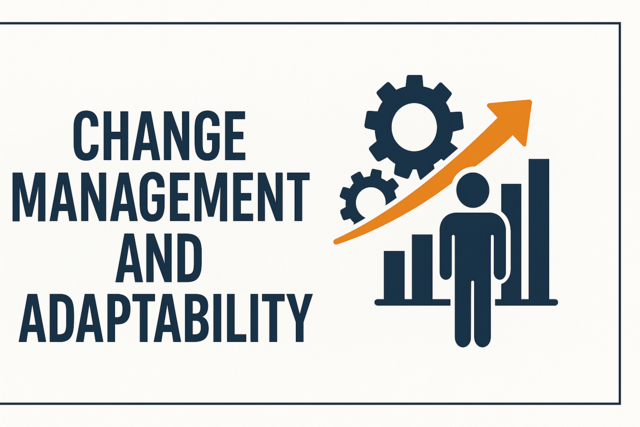 3 hours
0.3 CEUs
Change Management and Adaptability
+ More Info
3 hours
0.3 CEUs
Change Management and Adaptability
+ More Info
-
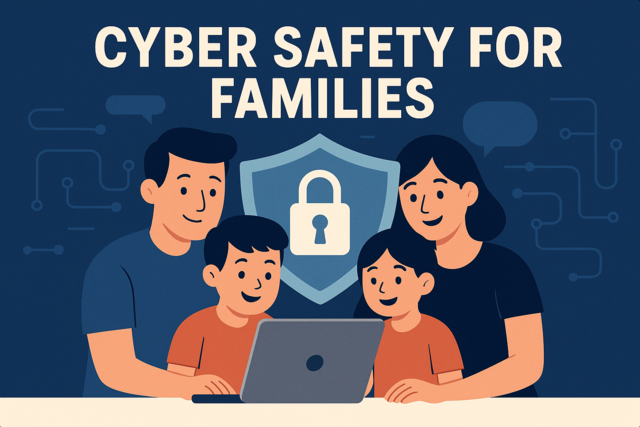 5 hours
0.5 CEUs
Cyber Safety for Families
+ More Info
5 hours
0.5 CEUs
Cyber Safety for Families
+ More Info
-
 5 hours
0.5 CEUs
Metaphysical Realms: A Journey Beyond
+ More Info
5 hours
0.5 CEUs
Metaphysical Realms: A Journey Beyond
+ More Info
-
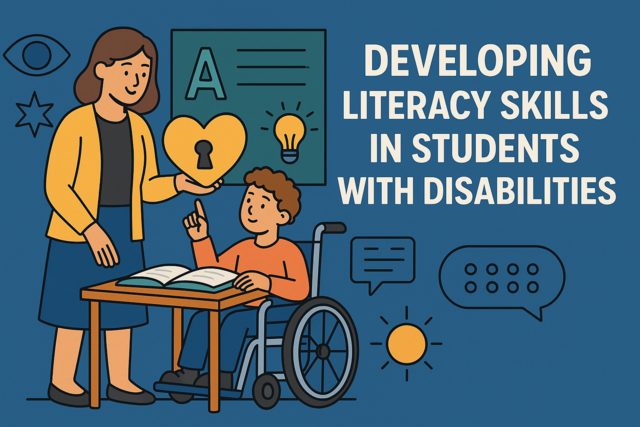 5 hours
0.5 CEUs
Developing Literacy Skills in Students with Disabilities
+ More Info
5 hours
0.5 CEUs
Developing Literacy Skills in Students with Disabilities
+ More Info
-
 7 hours
0.7 CEUs
Harmony at Home: Techniques for Peaceful Coexistence
+ More Info
7 hours
0.7 CEUs
Harmony at Home: Techniques for Peaceful Coexistence
+ More Info
-
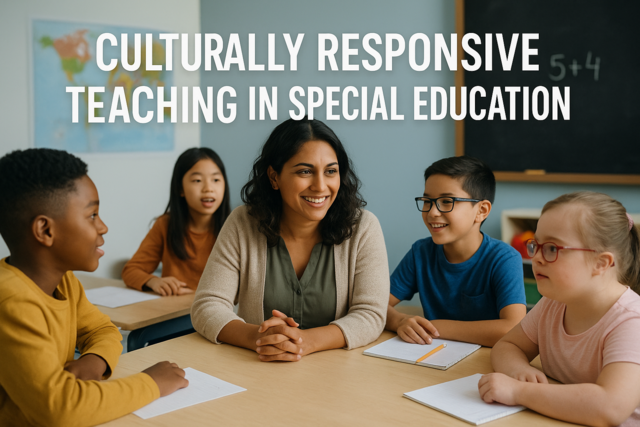 6 hours
0.6 CEUs
Culturally Responsive Teaching in Special Education
+ More Info
6 hours
0.6 CEUs
Culturally Responsive Teaching in Special Education
+ More Info
-
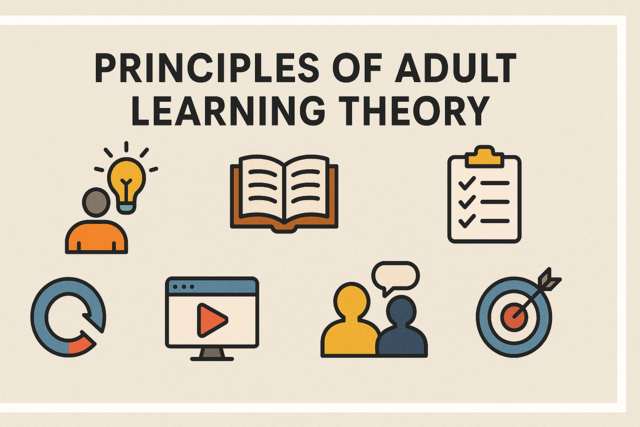 4 hours
0.4 CEUs
Principles of Adult Learning Theory
+ More Info
4 hours
0.4 CEUs
Principles of Adult Learning Theory
+ More Info
-
 5 hours
0.5 CEUs
Dress Like a Mogul: Navigating High-End Fashion for Men
+ More Info
5 hours
0.5 CEUs
Dress Like a Mogul: Navigating High-End Fashion for Men
+ More Info
-
 5 hours
0.5 CEUs
Boosting Productivity with Effective Email Management
+ More Info
5 hours
0.5 CEUs
Boosting Productivity with Effective Email Management
+ More Info
-
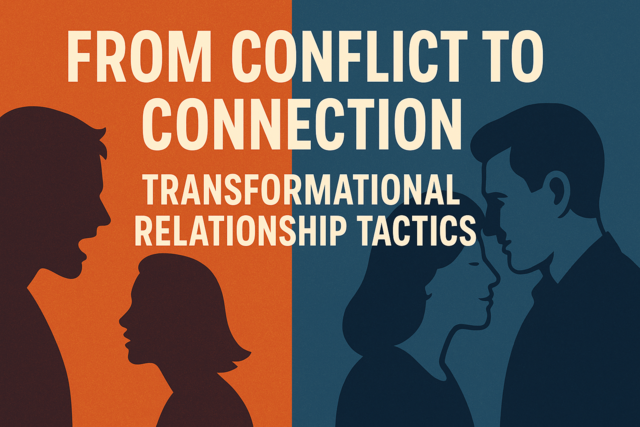 3 hours
0.3 CEUs
From Conflict to Connection: Transformational Relationship Tactics
+ More Info
3 hours
0.3 CEUs
From Conflict to Connection: Transformational Relationship Tactics
+ More Info
-
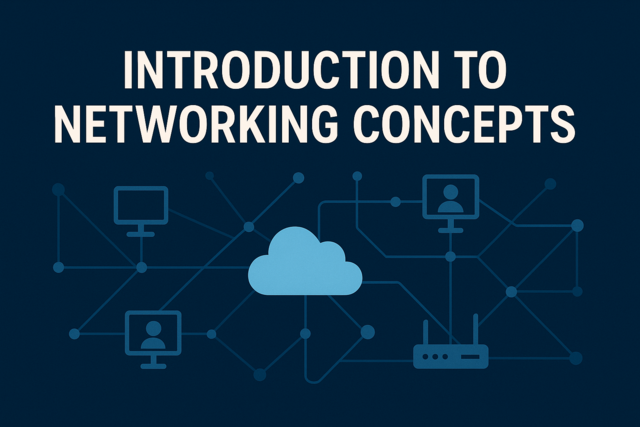 3 hours
0.3 CEUs
Introduction to Networking Concepts
+ More Info
3 hours
0.3 CEUs
Introduction to Networking Concepts
+ More Info
-
 7 hours
0.7 CEUs
Blended Learning Models in Schools
+ More Info
7 hours
0.7 CEUs
Blended Learning Models in Schools
+ More Info
-
 7 hours
0.7 CEUs
Research Frontiers: Contemporary Studies in Trauma and Recovery
+ More Info
7 hours
0.7 CEUs
Research Frontiers: Contemporary Studies in Trauma and Recovery
+ More Info
-
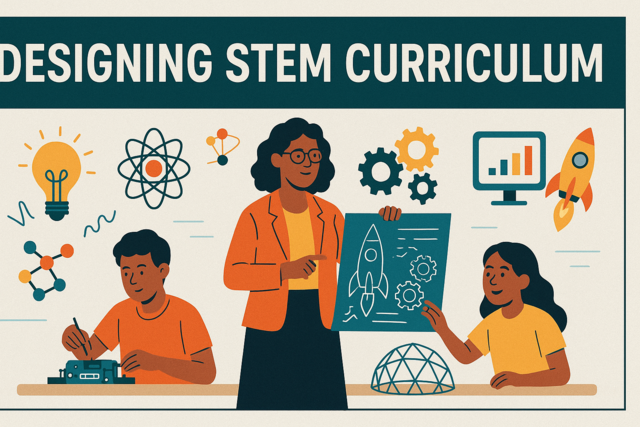 3 hours
0.3 CEUs
Designing STEM Curriculum
+ More Info
3 hours
0.3 CEUs
Designing STEM Curriculum
+ More Info




